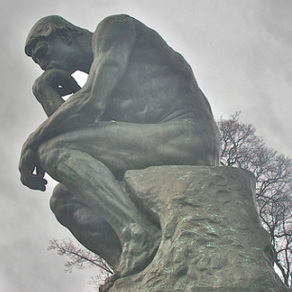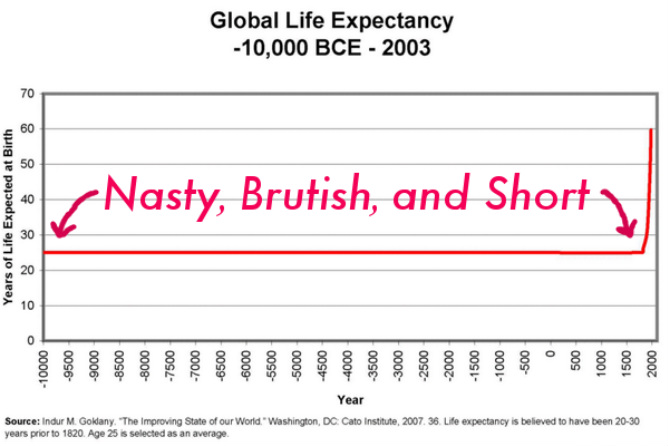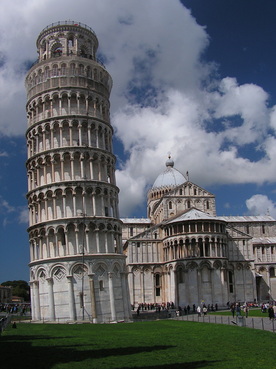
Rodin's Thinker, begun in 1880 was originally part of a larger commission celebrating Dante's Divine Comedy, but it just as easily could have been dedicated to René Descartes—he of the second most famous line in all of philosophy: cogito ergo sum or I think, therefore I am. (Know thyself is surely #1, though these rankings are just personal speculations and therefore likely wrong.)
Descartes' is known as the "father of modern philosophy" due to the first two of his Meditations on First Philosophy in which he laid out his famous methodic doubt—the systematic process he used of being skeptical about the truth of one's beliefs. Though it may sound familiar, this was actually a more nuanced doubt than the radical nihilism of the Skeptics of Ancient Greece. Descartes did not give up the search for truth believing that nothing could ever be known—he instead tried to reject any ideas that could be doubted in the hopes of finding one solid rock upon which knowledge could be built. Initially, Descartes arrived at only a single principle: thought exists. He wrestled deeply with all his doubts until he concluded in the end that if he doubted, then something or someone must be doing the doubting, therefore the very fact that he doubted proved his existence.
The original Skeptics knew, of course, that this line of reasoning was circular and could not be trusted. Even Descartes' doubt and existence could be doubted. The mind, like the senses, can be fallible. Brain tumors can lead to crimes as heinous as pedophilia. We might merely be part of a dream. Or perhaps we are all in a computer simulation. As I said in tenet #2 of my evolutionary philosophy, all knowledge is probabilistic. By demanding one certainty, Descartes committed himself to proffering several fundamental errors. Because of his insistence though, the philosophical debate of his age was shifted from "what is true" to "of what can I be certain?" Possibly without realising it, Descartes changed the medieval search for an authoritative guarantor of truth from God to humanity, since the traditional concept of "truth" implies an external authority while "certainty" relies instead on the judgment of the individual. This was an anthropocentric revolution, raising the human being to the level of a free agent acting with autonomous reason. It was the basis for modernity in the philosophical sense, and for this we should be grateful.
Here are few quotes of his worth remembering before we test Descartes fully in my survival of the fittest philosophers.
If you would be a real seeker after truth, it is necessary that at least once in your life you doubt, as far as possible, all things.
It is not enough to have a good mind. The main thing is to use it well.
The greatest minds, as they are capable of the highest excellencies, are open likewise to the greatest aberrations; and those who travel very slowly may yet make far greater progress, provided they keep always to the straight road, than those who, while they run, forsake it.
-------------------------------------------------------------------
Rene Descartes (1596-1650 CE) was a French philosopher, mathematician, and writer who spent most of his adult life in the Dutch Republic. He has been dubbed the father of modern philosophy, and much subsequent Western philosophy is a response to his writings.
Survives
Descartes is often regarded as the first thinker to emphasize the use of reason to develop the natural sciences. For him, philosophy was a thinking system that embodied all knowledge, and he expressed it in this way: “Thus, all Philosophy is like a tree, of which Metaphysics is the root, Physics the trunk, and all the other sciences the branches that grow out of this trunk. By the science of Morals, I understand the highest and most perfect, which, presupposing an entire knowledge of the other sciences, is the last degree of wisdom.” Logic and reason are the fundamental tools by which all experience is turned into knowledge. The questions of philosophy guide our explorations. As we have filled in the tree of life with our knowledge, a picture of morality and wisdom is indeed coming into focus.
Descartes wrote a response to skepticism about the existence of the external world. He argued that sensory perceptions come to him involuntarily, and are not willed by him. They are external to his senses, and according to Descartes, this is evidence of the existence of something outside of his mind, and thus, an external world. Who but the most vain and childish can doubt that the external world exists?
Needs to Adapt
Descartes was a major figure in 17th-century continental rationalism (a view appealing to reason as a source of knowledge or justification), later advocated by Baruch Spinoza and Gottfried Leibniz, and opposed by the empiricist school of thought (theory that knowledge arises from sense experience) consisting of Hobbes, Locke, Berkeley, Jean-Jacques Rousseau, and Hume. Descartes attempted to construct a system of knowledge discarding perception as unreliable and instead admitting only deduction as a method. The extreme forms of rationalism and empiricism are just that - extreme. The truth lies in the middle. Knowledge comes from using reason to understand our sense experiences. The iterative nature of the scientific method is what hones this process towards truth. In a large and changing universe, eternal absolutes are extremely difficult to prove. We must act based on the best available knowledge. This leaves us almost entirely with probabilistic knowledge, which means we must act with confidence and caution appropriate to the probability, being especially careful in realms where knowledge is uncertain and consequences are large.
Descartes is also known for his theory of dualism, suggesting that the body works like a machine, that it has the material properties of extension and motion, and that it follows the laws of physics, whereas the mind (or soul), on the other hand, was described as a nonmaterial entity that lacks extension and motion, and does not follow the laws of physics. Descartes argued that the mind interacts with the body at the pineal gland. This form of dualism proposes that the mind controls the body, but that the body can also influence the otherwise rational mind, such as when people act out of passion. Most of the previous accounts of the relationship between mind and body had been uni-directional. Very nearly extinct. At least Descartes proposed a bi-directional relationship between the mind and the body. While the exact way that consciousness arises from the body is still a mystery, a much wider mind-body interaction is universally accepted now.
Gone Extinct
Descartes is best known for the philosophical statement "Cogito ergo sum"; I think, therefore I am. I feel, therefore I am. The universe responds to my actions, therefore I am. Others detect me, therefore I am. There is much evidence for our existence and the existence of others and other things. Our inner thoughts are actually the least convincing of these arguments.
Descartes believed that only humans have minds. This led him to the belief that animals cannot feel pain, and Descartes' practice of vivisection (the dissection of live animals) became widely used throughout Europe until the Enlightenment. How very sad for other animals is the ignorance and hubris of humans.
-------------------------------------------------------------------



